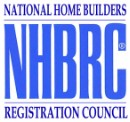Home
Developments
Civils
New houses
Commercial
Renovations
Energy Solutions
Building Tips
Contact us



BUILDING TIPS
Building your own house is a big financial decision. The risks of choosing the wrong builder are very real and the repercussions are long lasting. Builders are typically selected by referral, or by haven seen the builders' workmanship.
Here's a list of tips
- Select the right area (remember the 5 P's of marketing: position, position...). If the soil does not look stable, get an expert opinion from a geological engineer. Foundations in unstable soils can be very costly.
- Start dreaming and planning your home. Make sketches, look in magazines, drive around. Eventually, have plan drawn up by an architect or a drafts person. To have a 3D computer model build really helps a lot, especially if the house is complex.
- Work out your budget: cash? bank home loan?
- Choose a builder, NHBRC registered.
- if you are building with a home loan, financial institutions will often have different requirements for building standards than those imposed by the NHBRC. Make sure your builder complies with the highest standard applicable for each item.
- Plan approvals: if you live in a complex which is governed by a home owners association, then approval needs to be obtained by them, prior to submitting your plans to the relevant council.
- The house needs to be enrolled with the NHBRC. Enrolment fees depend on the contractual value of the house.
- A registered structural engineer needs to be appointed to design and approve: foundations, slabs, retaining walls and the roof. Your builder would normally appoint such a person and register the appointment with your council.
- Get a building contract signed. Agree on a way of formal communications between yourself and the builder. Stipulate time line, cost, list the important materials to be used, payment schedule, conditions for payment etc. What to do in the event of disputes: get an independent assessor. Standard contracts you can use are the JBCC contract or the Master Builders contract. You need purchase an original copy from these institutions. A photocopy of these contracts is worthless. These contracts are inexpensive and comprehensive.
- Bricks or other materials may have a long lead time, keep that in mind
- If you have neighbours, speak to them about sharing the cost of the divider walls
- Visit your council to apply for a water connection to your stand. You will be required at the same time to apply for the sewerage connection. You may also get the forms needed by the electrician to apply later for the electrical connection. You will be required to pay some fees. Important: some councils only accept cash or bank guaranteed cheques.
- If required, apply for a temporary builder’s electricity connection.
- Once you have council and HOA approved plans you may START BUILDING.
- Building is not a always a predictable task, especially during excavations and foundation work. Soil conditions and weather can drastically affect project timelines. Be mentally prepared for deviations.
- Only now do you start seeing the reality of what has been drawn on a flat piece of paper. I find that small changes from the plan are quite normal. Changes from the plan need to be documented in writing.
- The sewerage inspection is normally performed by the council, whilst your plumber is present.
- An electrician inspects and approves the installation: COC. After approval, the council can connect the electricity.
- After completion, an occupation certificate must be obtained from the council. You are now legally allowed to move into and enjoy your new home.
- Don’t forget that even a new house requires maintenance, look after your investment. Don’t stall those little maintenance jobs until you want to sell your house.